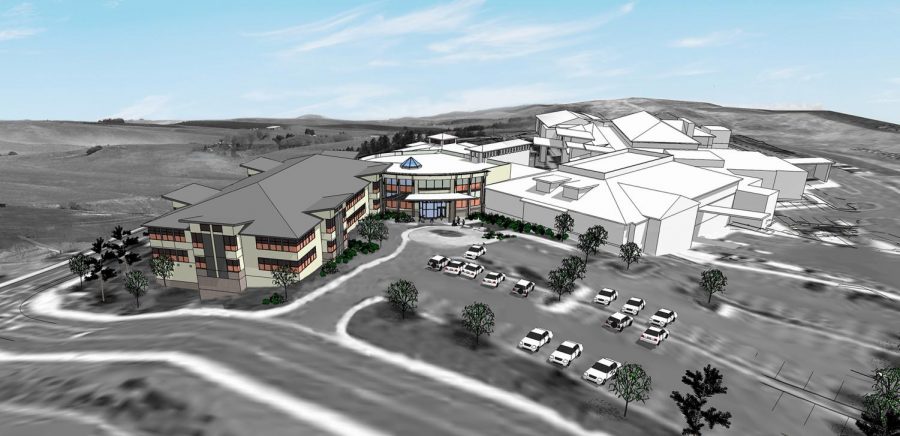Pullman Regional to re-run bond on ballot
CEO says project will improve healthcare provided to clients
Pullman Regional Hospital officials will propose a bond on the November ballot of $29 million to be paid in next 25 years to fund the Next Era of Excellence project.
October 21, 2019
Officials at Pullman Regional Hospital are pursuing their Next Era of Excellence plan by proposing the bond for a second time, which will ask for $29 million to be paid over the next 25 years.
Scott Adams, CEO of PRH, said that as Pullman’s population grows so does the need for healthcare services.
If passed, the bond will pay for two propositions: more space for medical services and a new electronic medical record system.
Adams said the plan is to expand the hospital by about 45,000 square feet, which will be used for outpatient services.
PRH plans to expand its current services and bring in new services such as dermatology, rheumatology and endocrinology, Adams said. It will also allow them to make space for a residency program.
A medical residency is a three-year program that medical doctors are required to complete after medical school. They work in a hospital as a resident to get hands-on experience, he said.
“It’s got a huge opportunity to improve the level of healthcare in our community,” Adams said. “The data shows that 70 percent of physicians when they’re done with training will stay within 100 miles of where they trained.”
Having a residency program will improve both recruitment and retainment for physicians, he said. Having the program makes physicians want to stay because they get to help train the next generation of physicians, which is gratifying.
There are about 200 residencies in Washington and fewer than 20 of them are east of the Cascades, he said. There is an inequality in access to the medical residency program.
“What we’re at the leading edge of is finding a path to turn that around and create a residency training program in a rural community,” Adams said.
The other aspect of the plan is to create a new medical record system.
The current electronic medical record system is aging and becoming obsolete, Adams said.
“We need to upgrade, and in the midst of upgrading, there’s an opportunity for us as a community to remove some barriers to care by creating a single source of health information,” he said.
The new medical record system is called Epic, Adams said.
This can make sure that tests are not lost or duplicated and prevent patients from filling out the same forms repeatedly, he said.
Tricia Grantham, President of the PRH Board of Commissioners, said that not only do they want to communicate with hospitals outside our area, they want to communicate between departments and the Epic system will help do that.
All hospitals that use Epic will be better able to treat patients in emergencies because they will have access to their medical record and see what the doctors have been doing for treatment at home, she said.
“Over 50 percent of the hospitals and doctors in the state of Washington use Epic. Epic is the most widely used medical record in the United States right now,” Adams said.
In Washington, to pass a bond issue, the vote must be greater than 60 percent in favor, he said. Adams said they need to receive at least 40 percent of the number of votes they received in the last general election for it to be considered a valid vote, he said.
Grantham said there was a low voter turnout for the previous bond.
“As a commissioner, I’m hoping people will get out there and vote,” she said.


















Tod Merley • Oct 21, 2019 at 3:48 pm
A recent article tells me that American health care ranks 27th in the world, down from 6th in 1990. American infant mortality is about twice that of the other first world nations. Yet we spend the most of any nation in the world, an average of nearly ten thousand dollars per person per year! Our outrageously for profit disease management system works well for the industry but is bad for our health.
Perhaps it is time to stop rewarding bad behavior?
Even more it is simply high time to break the current medical monopoly by placing functional medicine, naturopathy, osteopathy, traditional Chinese medicine, and the many other healing disciplines on even footing regarding research dollars and representation within those governmental structures charged with the oversight of medical care.
Too long the current medical monopoly mafia has had the upper hand.